Over the years, we’ve had the honor of talking with many of the greatest musicians in classical music today.
Today, we’re gathering some of their best advice for musicians in one article. If you ever find yourself stuck in a rut creatively, we’re here to help!
Here’s some of the best advice our experts have given us:
1. Try yoga!
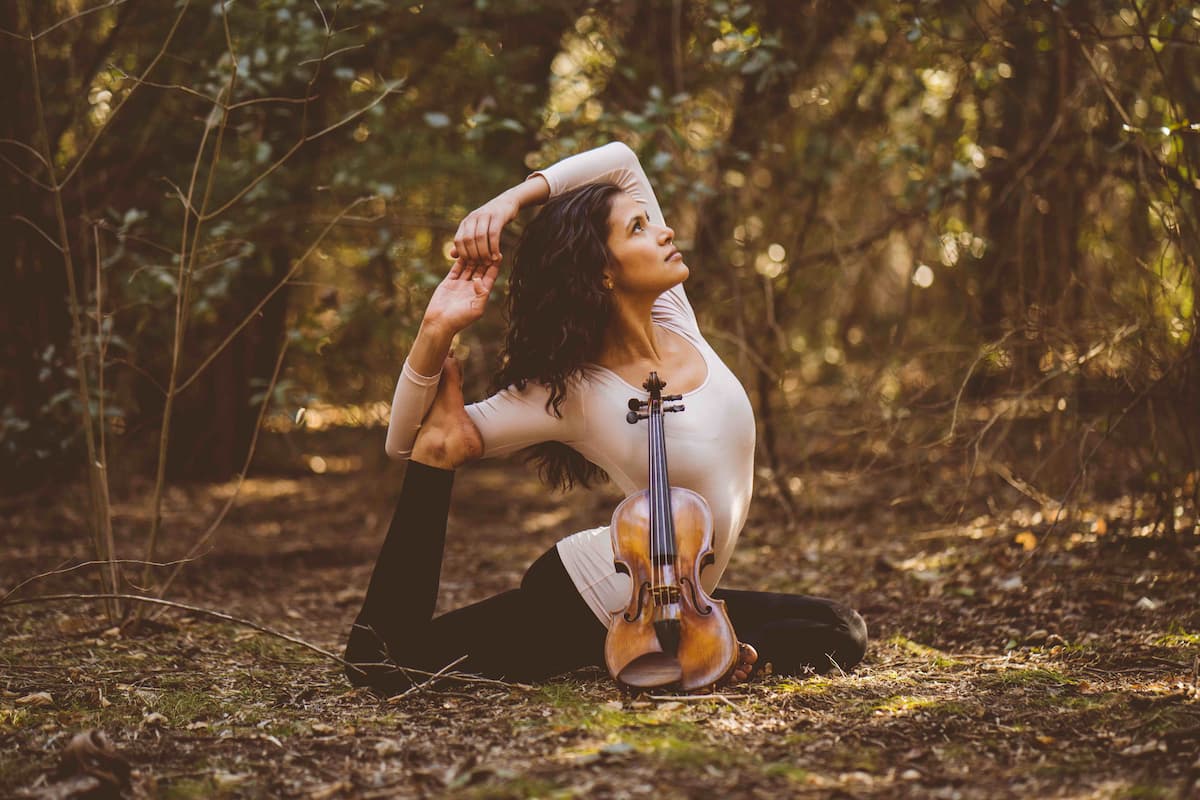
Violinist Elena Urioste
With the amount of travel and moving through the world, and with the flexibility that our extremely irregular profession requires of us, something like a yoga or mindfulness practice – even if you spend just five minutes breathing or doing some gentle stretches at some point in the day – can be a real safe haven for us, a sort of refuge.
Violinist Elena Urioste
Yoga and other practices that make you more mindful will help you be more aware of your surroundings and more “plugged-in” to what you’re thinking about and playing.
Remember, you’ll never be able to play your best if you’re not taking care of yourself mentally, emotionally, and physically.
10 Moves for Musicians
2. You can teach yourself how to perform.
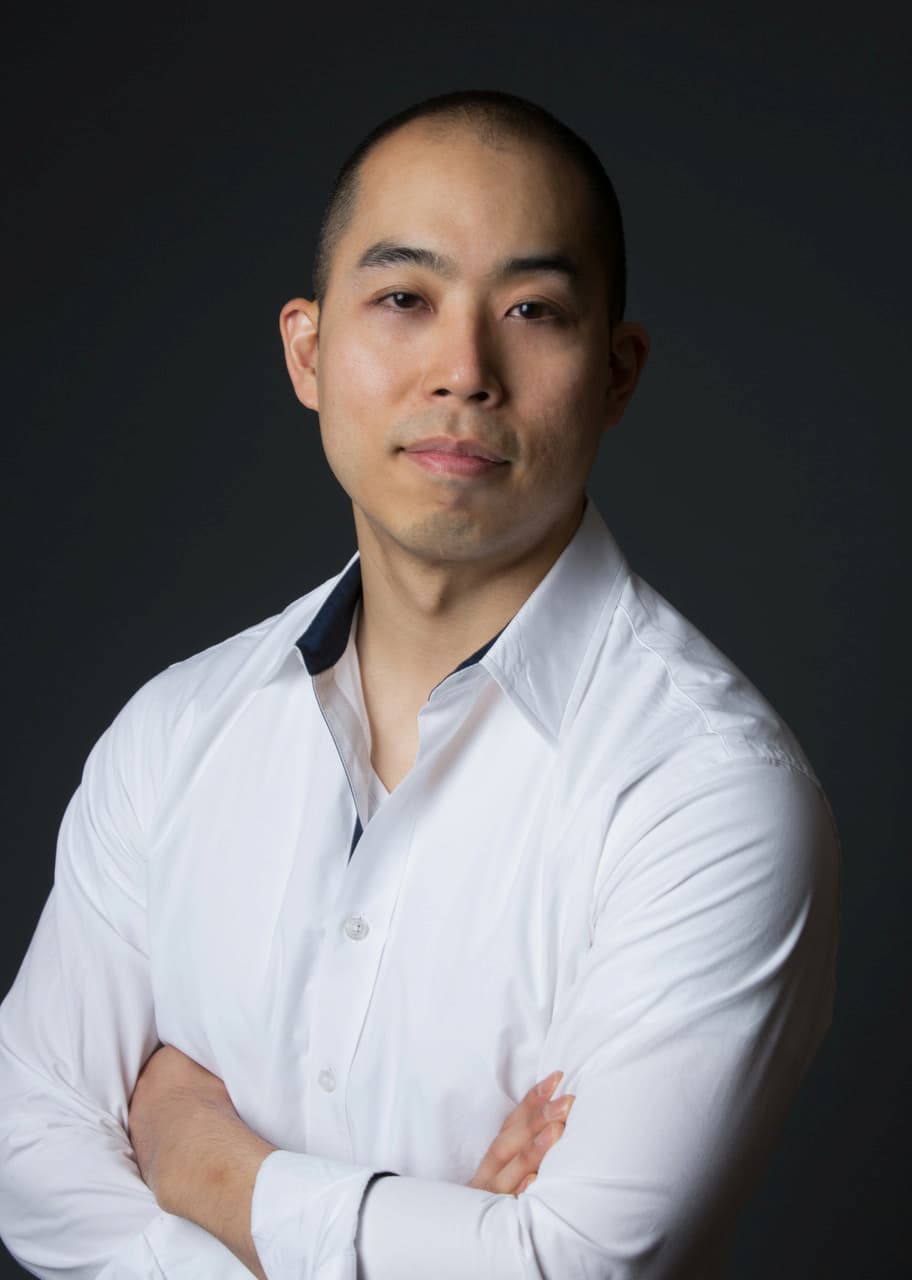
Noa Kageyama © Rosalie O’Connor
Learning how to practice more effectively and learning how to prepare for performances – especially how to get into a better headspace, and how to stay laser-focused in a performance (and what exactly to think about or focus on during a performance) changed my experience on stage. It was incredibly empowering to discover that I had control over my learning rate, and that I was also in charge of how well performances went too.
Performance Psychologist Noa Kageyama
In our March 2023 conversation with him, Noa Kageyama reframed the experience of performance anxiety.
He posits that it’s not something we’re always destined to have, but that changes we can make can provide more control over our performances.
3. Don’t be afraid of failure. In fact, give yourself the chance to screw up.

Pianist Hyung-ki Joo © Julia Wesely
The problem is there’s such a concentration on having to be ‘perfect’, whatever that means. But then you get cornered into this area of fear: fear of failing. And when you’re in that place of fear, creativity has no room to breathe and breed, because you don’t give yourself the chance to screw up.
Pianist Hyung-ki Joo
Pianist Hyung-ki Joo, half of the comedic duo Igudesman & Joo, is an expert at embracing creativity and fleeing fear! He has co-created a hugely popular comedy stage act to make musicians and music-lovers laugh. And as comedian Stephen Colbert has said, it’s impossible to laugh and be afraid at the same time. Something to keep in mind next time you take the stage!
Mozart Will Survive
4. Try adding narration or other disciplines to your musical performances. It might help the audience connect with you!
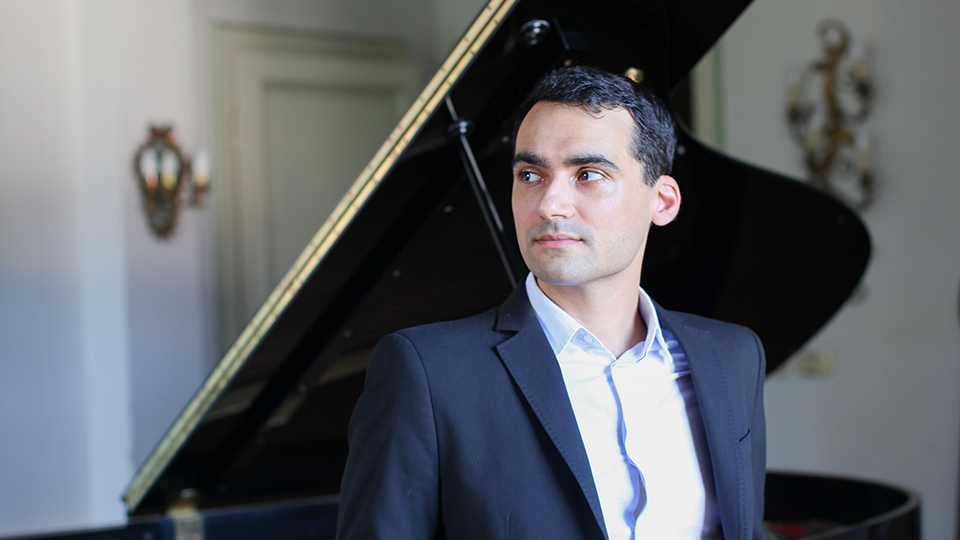
Tal Walker
I feel that making classical music accessible and approachable through diverse programming (of both performers as well as composers) is a good starting point. I found that narrated and/or interdisciplinary performances often help the audience to better connect with the music. Any other creative initiatives (such as performing in non-conventional venues) is always helpful to de-associate classical music with the status symbol elitist image it sometimes possesses and make it relevant and exciting for younger audiences.
Pianist Tal Walker
The next time you’re planning a performance, see if you can join forces with other artists, whether by including their art in the lobby, inviting dancers onstage, or bringing in actors to provide some kind of historical context via narration.
Collaboration is the name of the game when it comes to creating engaging performances.
5. Program contemporary music. Remind people that not all classical music is old or dead.
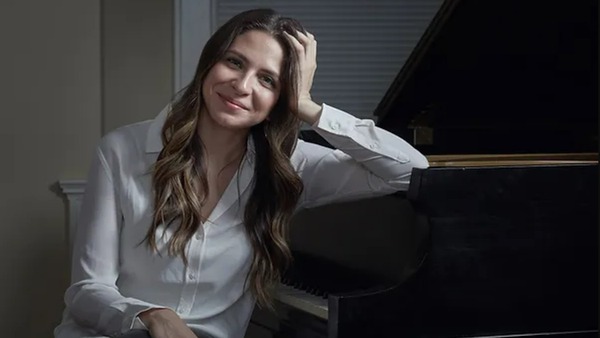
Brianna Matzke
The art form of classical music is a living, breathing art form! I can’t tell you how often a new acquaintance is surprised to learn that there are still living composers; there is too much of an association between classical music and being “old” and/or “dead.” If we continue to promote and program beautiful, moving, and surprising contemporary music, audiences around the world will understand that classical music has relevance for their lives. Ultimately, I hope that by promoting contemporary music we can build larger and stronger communities surrounding our music-making and also that we can use our music-making to support our communities!
Pianist and Educator Brianna Matzke
As Brianna Matzke talks about in her full interview, presenting contemporary music isn’t just about crafting a performance. Done right, it’s also about fostering a sense of discovery and community between performers and audiences.
6. When learning a concerto, don’t just study your part. Study the orchestra part too, and be inspired by it.
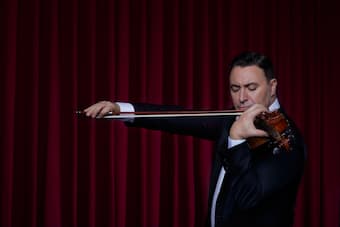
Maxim Vengerov © IDAGIO – Diago Mariotta Mendez
“Once you know the full score, it adds a new dimension to your performance. It’s no longer a violin piece with orchestral accompaniment… you can refer to one or another line in the orchestra and that’s where you draw your inspiration… The impact that the orchestra has on the soloist is vast. And if you’re not part of it, then it’s a different piece.”
Violinist Maxim Vengerov
In July 2022, it was our pleasure to talk to Maxim Vengerov, an absolute legend of violin playing. His advice for learning all parts of your solo will change how you study concertos, whether you ever play them with orchestras or not.
Maxim Vengerov Plays Waxman, Brahms, Rachmaninoff, Ravel and Bazzini
7. Don’t desire a solo career just for the sake of having a solo career. Prioritize opening new doors and reaching more people instead.
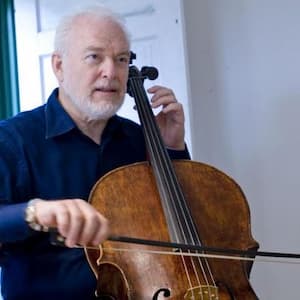
Paul Katz
I first think we need to consider: why do we aim to become musicians? The ambition for a solo career and practicing six hours a day or more while letting the world go by, doesn’t necessarily bring fulfillment. We each need to consider how we can be the best musician and person we can be, while continuing to represent the highest artist values and generating purpose. How can the next generation fill a niche, open new doors, reach more people?
Cellist and Educator Paul Katz
There are a number of times when pursuing a professional musical career can feel like crossing things off a very stressful, high-stakes checklist. In his interview with us, Paul Katz, founder of the website CelloBello, reminds musicians to stay grounded and relevant.
CELLOBELLO: Virtuosity, Expression, Mastery, Education
8. Don’t be afraid to play challenging or complex music for kids!

Evelyn Chang
Make classical music available for all children! Music is music, it’s personal that either you like it or not. When you play music to very young kids they don’t categorise the music, they just know if they enjoy it or not. And yes, it takes more time and some learning to know how to listen to music of more complex textures in order to enjoy it on a different level, but it’s all a matter of time and exposure, in my opinion. The earlier they start the longer they can enjoy it. Knowing how to listen to music is one of the most wonderful gifts in life.
Pianist and Composer Evelyn Chang
Evelyn Chang works with young kids and knows her audience very well. So next time you have young audience members, bring out a challenging piece and see what they think! They may well be more receptive than the adults in your audience.
9. You don’t have to be a professional musician to accomplish incredible things in music.
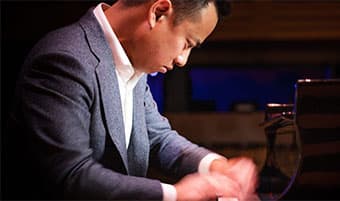
© Paul Wee
The single most important point I would stress is to remember that your love for music and your instrument isn’t linked to your identity as an aspiring or professional musician. A genuine love for music isn’t the same thing as being in love with the idea of being a successful professional musician. Sadly, I’ve known many musicians who have confused the two. Ask yourself at every stage why you are doing what you are doing, and never lose sight of why you fell in love with music in the first place: treasure that flame. The joy and riches to be found in music are far bigger than any career, and if you don’t end up being a professional musician, that won’t detract from your ability to enjoy all the treasures that music has to offer – in fact I sometimes wonder whether it leaves you better placed to appreciate them.
Pianist and Barrister Paul Wee
The astonishing Paul Wee sustains a career as a barrister and as a pianist! In our full interview, we talked to him about balancing these two demanding identities…and also why having a day job might actually be a wise path for an ambitious musician to consider.
10. Don’t wait for inspiration to hit. Actively work to find out what inspires you.
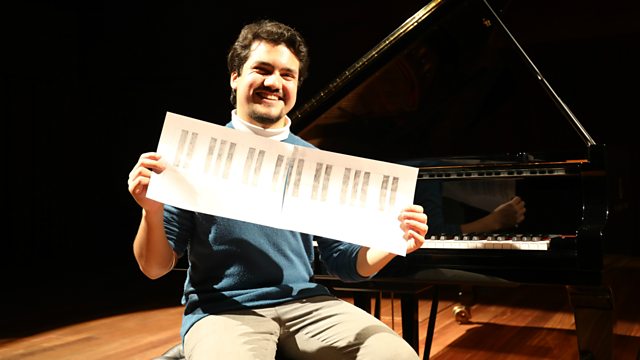
Andrew Garrido
© BBC
I’ve found you can’t just wait to be inspired, rather you need to find inspiration from within, and that comes from the love of music; if you find new ways to love music, you’ll find new ways to be inspired.
Pianist Andrew Garrido
We hope that something in this list inspired you to think about music-making from a new angle.
Thank you to our contributors and our interview subjects for sharing their combined centuries of knowledge with our readers!
For more of the best in classical music, sign up for our E-Newsletter
